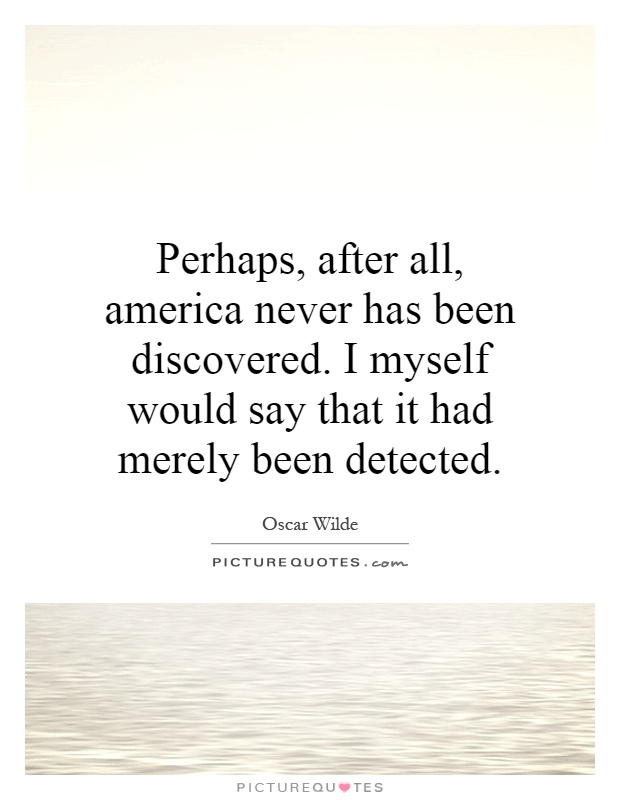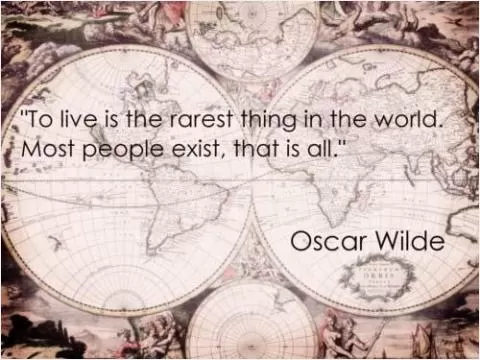Perhaps, after all, america never has been discovered. I myself would say that it had merely been detected

Perhaps, after all, america never has been discovered. I myself would say that it had merely been detected
Oscar Wilde, the renowned Irish playwright and poet, was known for his wit, humor, and sharp observations on society. In the context of the quote, "Perhaps, after all, America never has been discovered. I myself would say that it had merely been detected," Wilde's words can be interpreted as a commentary on the Eurocentric view of history and the notion of discovery.Wilde's statement challenges the traditional narrative of Christopher Columbus "discovering" America in 1492. By using the word "detected" instead of "discovered," Wilde suggests that America was not truly unknown or uncharted territory before Columbus's arrival. Indigenous peoples had been living in the Americas for thousands of years before European explorers set foot on the continent. Therefore, the idea of "discovery" implies a sense of ownership and superiority that disregards the existence and contributions of the native populations.
Wilde's choice of words also highlights the arrogance and ignorance of European colonizers who believed they were bringing civilization to "new" lands. In reality, the Americas had their own rich cultures, societies, and histories long before the arrival of Europeans. The concept of "discovery" implies a one-sided perspective that erases the agency and autonomy of indigenous peoples.
Furthermore, Wilde's statement can be seen as a critique of the Eurocentric worldview that has dominated Western history and culture. The idea of "discovering" America perpetuates the myth of European exceptionalism and reinforces the narrative of progress and conquest. By reframing the concept of discovery as detection, Wilde challenges the notion of superiority and entitlement that underpins colonialism.












 Friendship Quotes
Friendship Quotes Love Quotes
Love Quotes Life Quotes
Life Quotes Funny Quotes
Funny Quotes Motivational Quotes
Motivational Quotes Inspirational Quotes
Inspirational Quotes